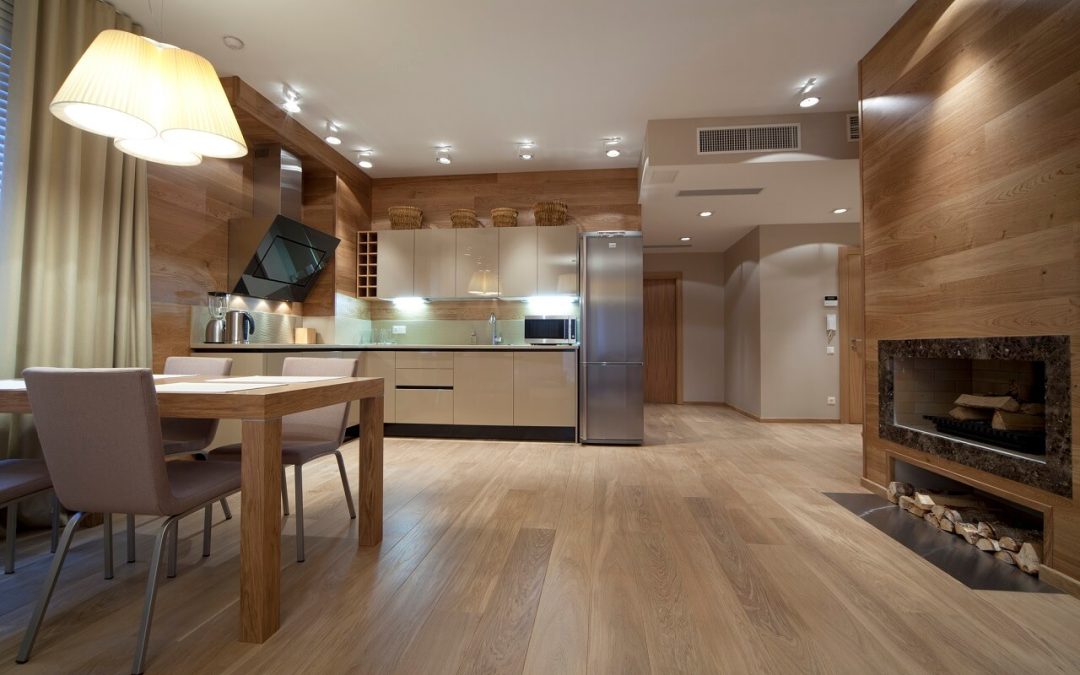When remodeling your home, changing the flooring is a significant project that affects a room’s look, feel, and function. With so many flooring materials available, deciding which is right for your home can be challenging. From hardwood to laminate, tile to carpet, there are many different types of flooring, each with unique features. Let’s look at six flooring materials so you can choose the right product for your home renovation.
Common Flooring Materials
Hardwood
Hardwood floors are timeless and never go out of style. The natural beauty of wood adds warmth and elegance to any home. Plus, hardwood flooring is relatively low maintenance and easy to clean. While hardwood can be dented and scratched, you can refinish it multiple times over its lifetime. One downside is hardwood is prone to water damage, making it a poor choice for damp areas like bathrooms.
Laminate Flooring Options
Laminate flooring is a budget-friendly option that can mimic the look of hardwood or tile. It’s durable, scratch-resistant, and resistant to fading. Plus, it’s easy to install, making it a great option for homeowners who enjoy DIY projects. Laminate materials are not as long-lasting as other flooring materials. It cannot be refinished; when laminate is stained, scuffed, or faded, you must replace it.
Tile Flooring Materials
Tile is highly durable and water-resistant, making it a great choice for high-traffic areas or rooms prone to moisture. It’s also easy to clean and comes in many colors and patterns. However, tile flooring is cold and hard underfoot, so it doesn’t provide the greatest comfort.
Vinyl Flooring
Vinyl is a popular choice for homeowners with busy households or pets because it’s waterproof and easy to clean. It comes in a range of styles, including those that mimic tile and hardwood. Vinyl flooring is low maintenance and can withstand scratches, scuffs, and spills. Plus, it’s budget-friendly compared to other common flooring materials.
Carpeting for Your Home
Carpet is a cozy and comforting option that adds warmth to any room. It comes in many colors and patterns and is perfect for bedrooms or living rooms. Carpeting offers insulating and noise-reducing qualities. However, it’s not the best choice for areas prone to moisture or spills, as cleaning can be challenging. Carpeting traps allergens like dust and pet dander, so it is not a good choice for allergy sufferers.
Concrete Flooring Materials
Concrete is a modern option that gives your home a sleek, industrial look. It’s extremely durable and easy to clean, making it a good choice for kitchens and mudrooms. Concrete and can be stained or painted to match any design style. However, it’s hard underfoot and may be unsuitable for homes with children or seniors.
Choosing the right flooring material is an important decision for any homeowner. Each material has advantages and disadvantages, so it’s essential to consider factors like durability, maintenance, and cost to determine the best option for your living spaces.
FAQs
Can I use radiant heating with any of the mentioned flooring materials?
Yes, you can use flooring materials like tile, concrete, and even hardwood with radiant heating systems. Radiant floor heating provides efficient warmth, and these materials conduct and retain heat well. Before installation, consult with a professional to ensure compatibility.
Are there eco-friendly options among the flooring materials mentioned?
Absolutely! Look into sustainable flooring options like bamboo, cork, or engineered hardwood. These materials are renewable and often have a lower environmental impact than traditional flooring choices.
Can I mix different flooring materials in various rooms of my home?
Yes, mixing flooring materials is a trend that adds visual interest and defines spaces within your home. Maintain a cohesive design using complementary color palettes and textures for a harmonious transition between different flooring types.
What maintenance tips are essential for extending the lifespan of vinyl flooring?
To prolong the life of vinyl, avoid using harsh chemicals or abrasive cleaners that can damage the surface. Place protective pads under heavy furniture to prevent scratches, and promptly clean spills to avoid staining.
Can hardwood flooring be installed in basements?
While hardwood is a popular choice, it’s generally not recommended for basements due to moisture concerns. Basements are prone to higher humidity levels, leading to warping of hardwood. Instead, consider vinyl, which is moisture-resistant and is a suitable alternative for below-grade spaces.
HomeSource Inspections offers professional inspections to homebuyers and sellers in Northern Indiana and Southwest Michigan. Contact us to request an appointment for our services.

